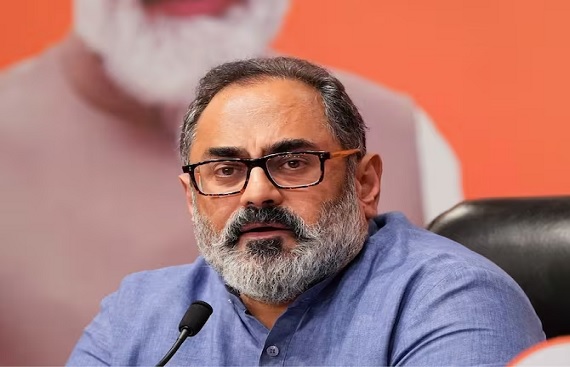Govt will regulate AI to keep digital citizens safe and tech poses no risk to jobs in next 5 years: Union IT minister Rajeev Chandrasekhar
By
siliconindia | Saturday, 10 June 2023, 03:25 Hrs

The Centre's approach to any regulation of Artificial Intelligence will be through the prism of "user harm or derived user harm through any technology", said Union IT minister Rajeev Chandrasekhar. During a press briefing where the IT minister gave a presentation on how far India has travelled in terms of digitisation in the last nine years, Chandrasekhar said AI will be regulated to ensure that it doesn't harm 'digital citizens'.
The same principle will be applied to any technology or digital platform such as Web3, he added. Web3 (also known as Web 3.0) is an idea for a new iteration of the World Wide Web which incorporates concepts such as decentralisation, blockchain technologies, and token-based economics. "There has been an increase in toxicity and criminality on the internet. We won't let attempts to harm digital citizens succeed. Either AI and related programmes and platforms will mitigate user harm or they will not be allowed to operate in India," said the minister.
He added that the new digital personal data protection bill will be introduced in Parliament soon, and consultations with stakeholders will begin this month on the Digital India Bill. On a question regarding threat to jobs due to the development of AI, the minister said: "There is some melodrama about AI. In fact, AI has created over 1 crore jobs in the last few years . There is a remote possibility that AI will become intelligent enough to start replacing human workforce in certain sectors after 5 years. But, currently the application of AI is restricted to tasks. It creates efficiency. There is a chance that it will replace overly repetitive and routine jobs in the coming years."
"While AI is disruptive, there is minimal threat to jobs as of now. The current state of development of AI is task-oriented, it cannot reason or use logic. Most jobs need reasoning and logic which currently no AI is capable of performing. AI might be able to achieve it in the next few years, but not right now," the minister added.
OpenAI CEO Sam Altman had met PM Narendra Modi hoping that India agrees to be a part of a 'United Nations of AI' that will jointly develop AI regulations. Altman has been vocal about the need to regulate AI on a global level to ensure it is developed for the good of all. He stated that will be much better and easier, if there is a global body that governs the development and deployment of AI, much like the International Atomic Energy Agency for nuclear power.
Altman is on a tour of several countries including Israel, Jordan, Qatar, the UAE and South Korea. Altman hopes that during his visit, he will be able to convince the leadership of these countries to form an international body that will dictate how AI is developed.
Last month, Chandrasekhar had reacted to Altman's efforts on AI regulation: "Altman has his own ideas about how AI should be regulated. We certainly think we have some smart brains in India as well and we have our own views on how AI should have guardrails". “If there is eventually a United Nations of AI as Sam Altman wants more power to it. But that does not stop us from doing what is right for our digital citizens and keeping the internet safe and trusted.”
